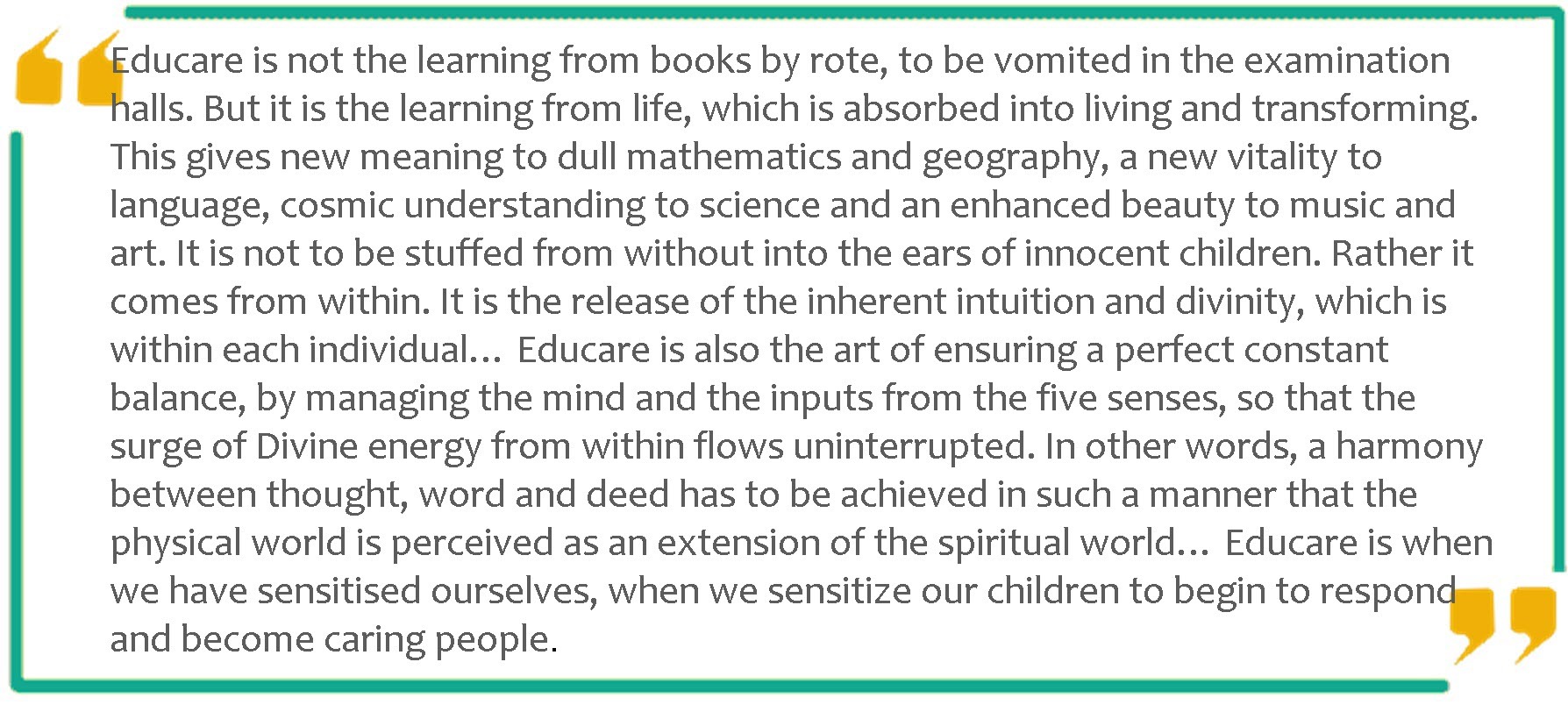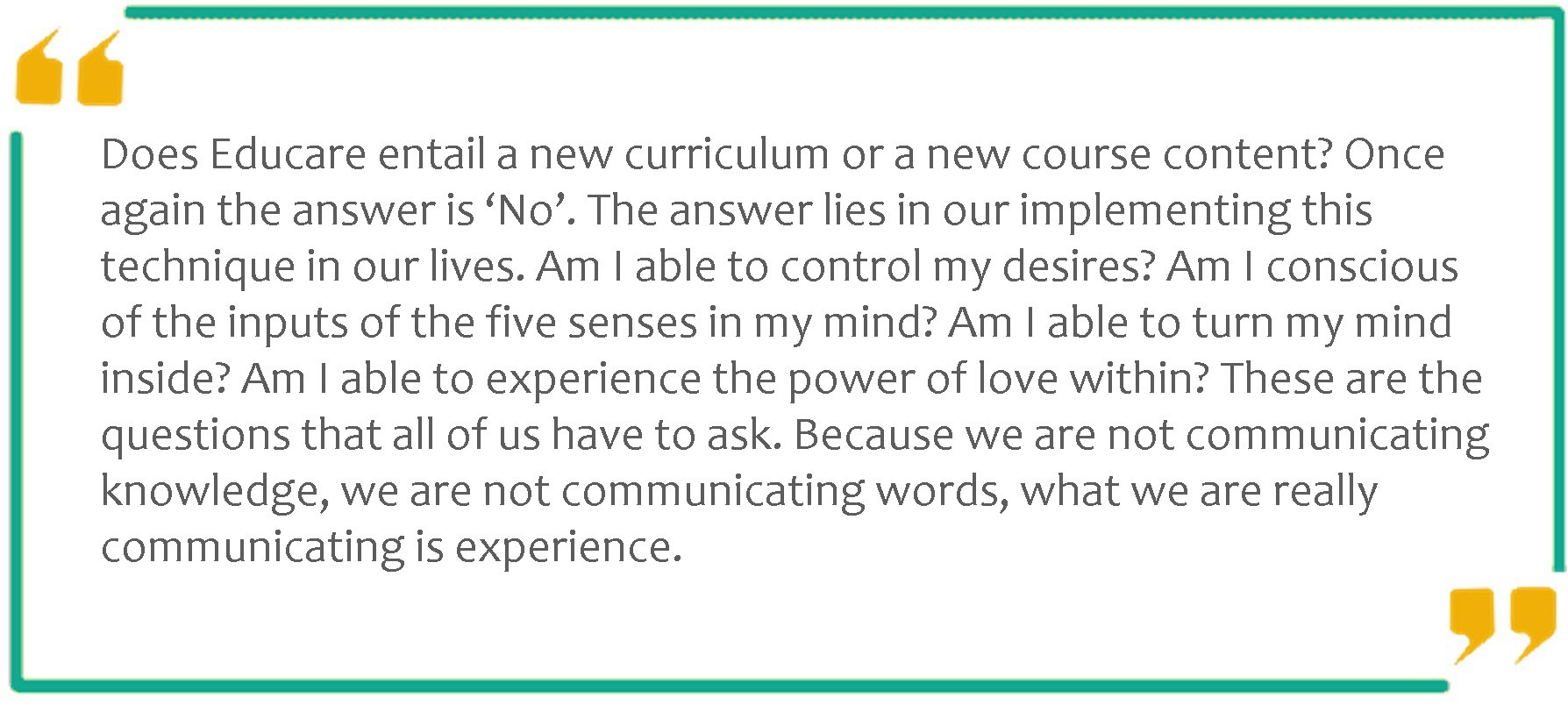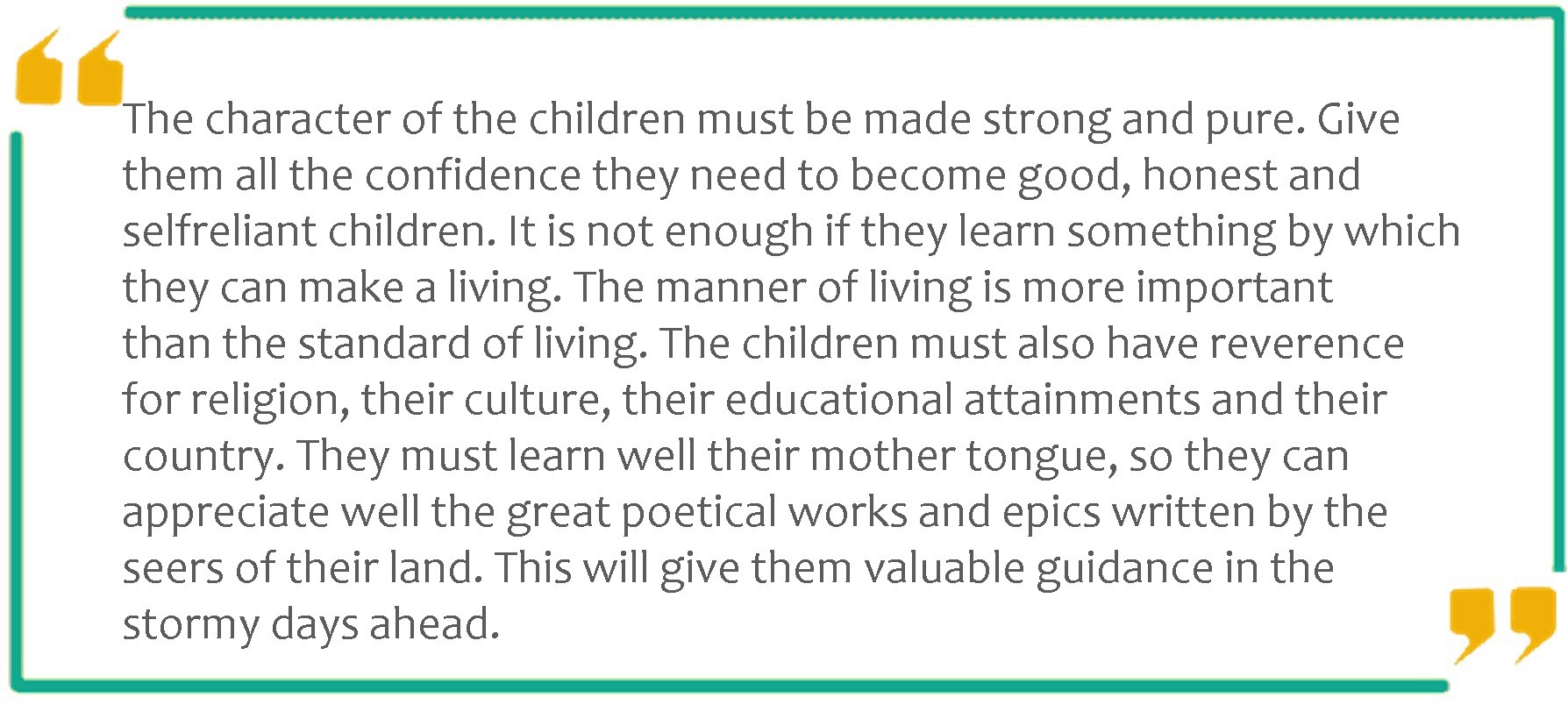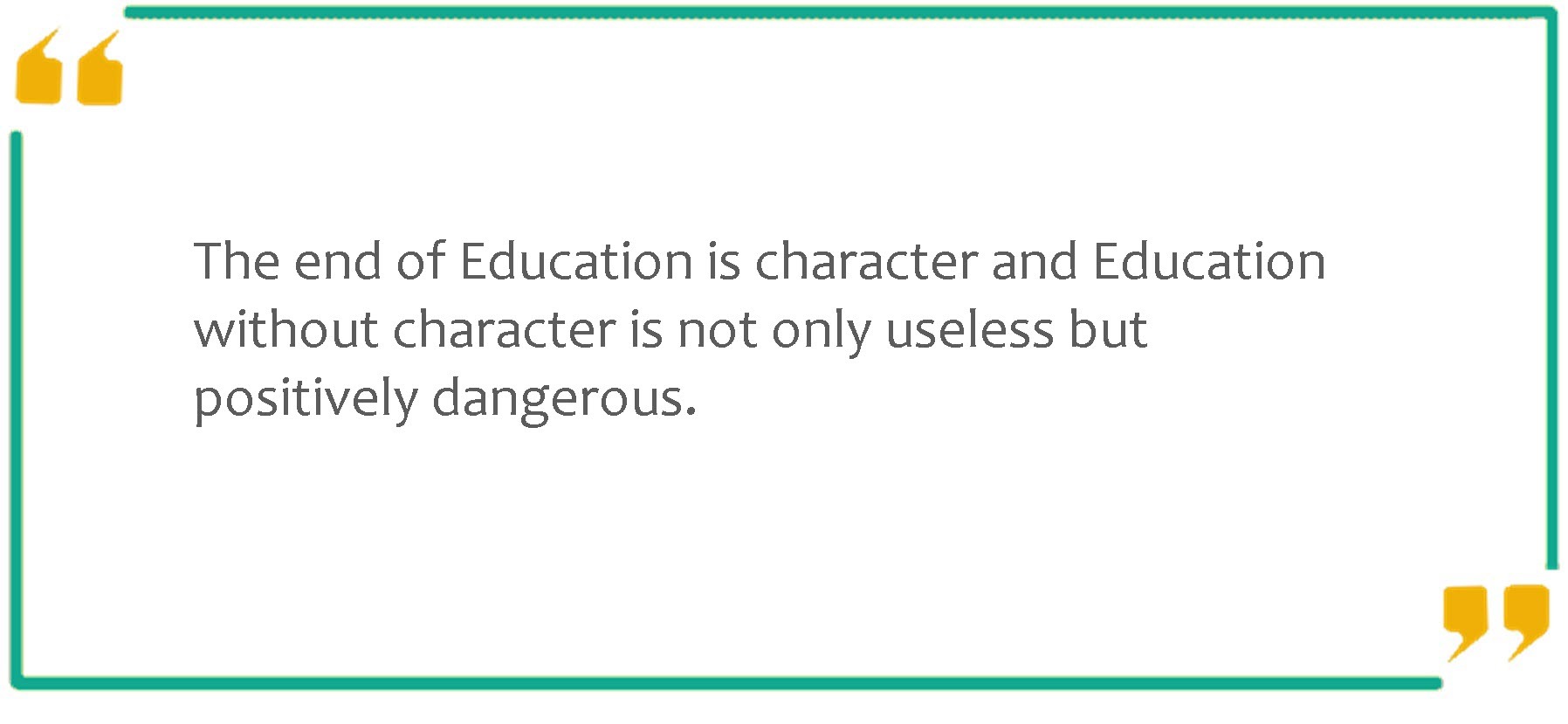
Sathya Sai Education in Human Values (SSEHV) has been designed with the awareness that a complete process of education implies the dissemination of knowledge, perfected by human virtue. It places emphasis on the fact that the practice of
virtue can be prompted and elicited easily from within each child, when teaching is value-oriented and complemented by a programme that places a ceiling on desires.
Sathya Sai Education in Human Values (SSEHV) seeks to promote unity, equality and peaceful co-existence with fellow human beings. It flows from the heart and is termed Educare. This term is derived from the Latin educaré, which means “to elicit
that which is within”. Hence it is not concerned only with cognitive development for earning a living, but with holistic health and well-being that encompass the cognitive, physical, mental, emotional and spiritual dimensions.
Educare is the philosophy of education that underpins SSEHV. It is concerned with stimulating students to reach deeply into their higher levels of consciousness and bring out the values and divinity that are inherent there.
The following statement outlines the essence of Educare:


In Educare students:
To bring out these qualities, teachers are constantly examining all their activities and interactions with their pupils, by reflecting on the questions:
Students are taught two important ingredients for life. One is that whatever thoughts come into their heads they think about and examine in their hearts before they act. This is referred to as 3HV, the harmony of head, heart and hands. The other is concentration and inner stillness. The main ingredient is love and through love they are helped to become self-reliant, self-confident, self-sacrificing and hence eventually self-realised.
It is through this awakening of human consciousness that students move beyond the concerns for personal welfare, to the welfare of all members of society. Such individuals will then be guided by their sense of right and wrong, good and bad, and by what is helpful rather than harmful to others.
The most distinguishing feature of this educational system is its philosophy that helping students develop a good character is equal in importance to fostering the development of skills that will help them to earn a good living. It sees education as being ‘for life’ and not merely for eking out a livelihood.
A comprehensive assessment of programme achievements was conducted by the Education Committee of Sri Sathya Sai World Foundation in 2006. Data were collected from 95 countries where Sathya Sai Educational Programmes were being implemented. Included are research reports from the Institutes of Sathya Sai Education, as well as the results of independent appraisals of Sathya Sai Schools made by governmental education agencies and by universities. Additionally, the assessment has drawn upon the vast wealth of anecdotal evidence that comes from students, ex-students, teachers, and parents who participated in these educational programmes. The report, which can be accessed here, supports that the SSEHV model, with its underpinning philosophy of Educare, has the capacity to transform the minds and hearts of all people.

